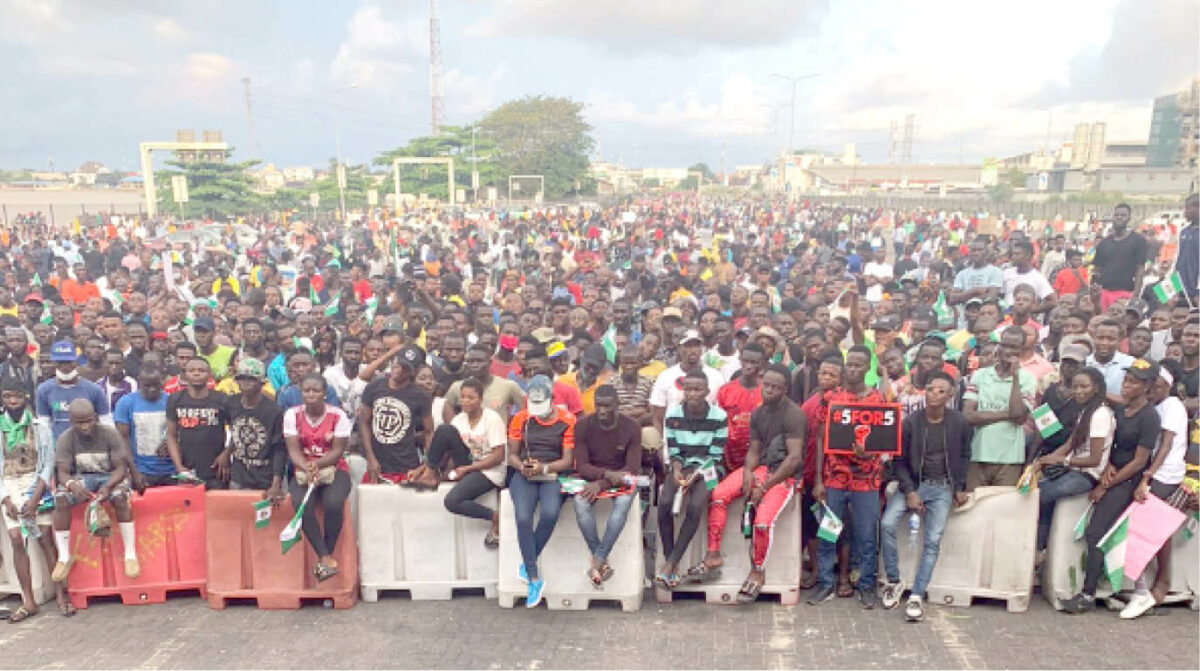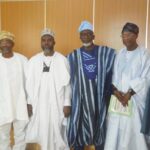“When people are free to do as they please, they usually imitate each other”. Eric Hoffer, 1902-83
At about 7pm on the 20th of October,2020, an incident occurred at the Lekki Tollgate area in Lagos State which more or less broke the back of the protests against police brutality which had gripped the nation’s attention for many preceding days. There is little outside the most hardened conspiracy theories that challenges the dominant narrative that people in military uniforms opened fire on the protesters. Beyond this epochal event, everything else is either under intense scrutiny or has now become part of those immovable elements of a story that will be jealously guarded by the many sides in a dispute over accountability, justice and respect for the rule of law.
- SON: Deepening Collaborations With Electrical Material Dealers
- Kuje Prison Restricts Access To Ndume As Senators Visit
Lagos State government had imposed a curfew after it had become apparent that violence had usurped the peace of the protests. Street lights and CCTV cameras were reported to have been taken down before or during the incident. Protesters sat down waving flags and singing even as trucks of military personnel approached and surrounded them, then opened fire on them. Some said policemen also came at midnight to shoot at more protesters. That night marked another descent into new lows in unfettered violence and criminality the like of which the nation may have never seen.
A Judicial Panel of Inquiry set up to establish what happened at Lekki among other weighty issues has been inundated by incredible pressures, conflicting flip flops and melodrama which combine to make the task of establishing facts nearly impossible. The central question was the circumstances that led to the presence of the military at the location of the #EndSARS protesters, which is no longer in dispute. Did the military invite itself or it was asked to intervene by Governor of Lagos State at a time when a curfew had been imposed and violence had taken over many parts of the state? Did the military use live or blank bullets against the protesters? Were there casualties among the protesters? If there were, who and where are they? Did policemen come to the area at midnight to shoot at the protesters as well? Were there links between the Lekki incident and the incidents of massive violence, destruction of public and private property, killings, including killing of policemen, looting and other criminal acts in Lagos and other parts of the country? Were there shadowy political interests and motives behind an uprising that had an honourable genesis and a most tragic exodus? How is the pervasive influence of social media a factor in the protests themselves and the manipulation of opinion which may have fueled the riots and other mayhem which accompanied the protests? What lessons should the country learn from Lekki and the journey of the protests, at least in Lagos?
Just when the Tribunal was grappling with the take-off of an intensely politicised and noisy assignment, CNN happened to its mandate. The global news network released what it promoted as major findings regarding the heavily disputed series of events which occurred at Lekki. Everyone sat up. After all, it was CNN, and Nigerians would switch lights on in day time if CNN says it is midnight. CNN confirmed what was largely known and on record: military personnel went to Lekki and shot at protesters in an attempt, presumably, to disperse them. It said there were deaths. It showed people who claimed there were deaths, and casings of bullets with links to the Nigerian military. It used footage from protesters and enhanced it with technology to show shootings. In spite of telling limitations in a report from an outfit with the reputation of CNN, it got senior government circles in Nigeria all worked up. Perhaps it was the apparent concern that a world we are eager to please will frown at the conclusion that Nigerian soldiers shot and killed flag-waving, harmless protesters, even when President Buhari was warning that further protests of that nature will not be tolerated. It could also be a reaction against the possibility that the report could worsen perception of a government that was, in so many ways, on trial before the tribunal and the public without having its own side heard.
The imperative of probing Lekki is much bigger than the issue of whether CNN was biased and unprofessional. This imperative is at the heart of the obligation to account to a nation that had just gone through horrendous trauma, ironically, over failure of elements of its policing institution to respect the duty to account to laws and citizens. In its favour, the federal government can claim credit for the setting up of the tribunal before CNN’s provocation. Now this tribunal must be encouraged to help answer some important questions. First, who mobilised military personnel to Lekki? Did the Governor of Lagos State request troops to go to Lekki? If he did request for soldiers to support civil authorities to preserve peace, law and order which in certain specific circumstances the law allows, who approved his request since he has no powers to mobilise members of the military? Under any circumstances, the issue regarding the mobilisation of the military must be made public. This administration’s record on the use of the military has been tainted by the killing of hundreds of Shia supporters in 2016 by the military. Some strategic allies in the fight against Boko Haram have also expressed much concern over the conduct of our military, and valuable support has been withheld because of the failure to rein-in some of the excesses observed. Second, facts related to use of lethal force, deaths and injuries must be established. Those who allege that people have died at Lekki must prove this with evidence. Three, the allegation that police personnel also went to Lekki and shot at protesters must be conclusively probed. Police was at the heart of the protests, and, as we speak, the nation is witnessing a surge in crimes and leadership of the police literally begging police personnel to resume duties in the nation’s frontline agency for providing public safety.
The government’s hand must be strengthened by its ability to be open and accountable, because it also has an obligation to take some tough decisions on matters that are directly related to the protests and its aftermath. The most challenging obligation will be the prosecution of people who broke laws during the protests and in related activities or during those free-for-alls when some people thought the rule of law had been suspended by a state that had its back against the wall. The huge distance between lawful assembly and the right to peaceful protest which must be upheld, and outrightly illegal and criminal conduct must be probed and those with evidence against them must be held to account. It will be tragic if state agents who broke laws are punished as the #EndSARS protests demanded, and citizens who commit murder, theft, destruction and other crimes are allowed to go unpunished. No international pressure must interfere with this. If there are legitimate concerns regarding the manipulation of social media for subversive and criminal purposes, government needs to do more than suggest that they exist. It needs to prove the harm social media does, and cultivate support to limit the damage it does.
Lekki represents more than an incident. It is a powerful demand for openness and accountability, without which the nation will continue to make unnecessary and grave concessions. It is also an opportunity to redress an untidy balance between a state that is open and accountable, and citizens who live with the privileges and consequences of the rule of law.

 Join Daily Trust WhatsApp Community For Quick Access To News and Happenings Around You.
Join Daily Trust WhatsApp Community For Quick Access To News and Happenings Around You.


